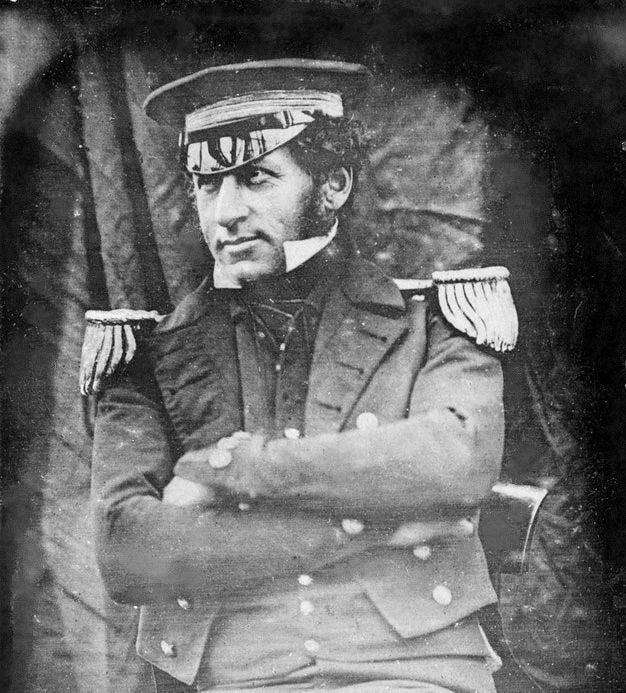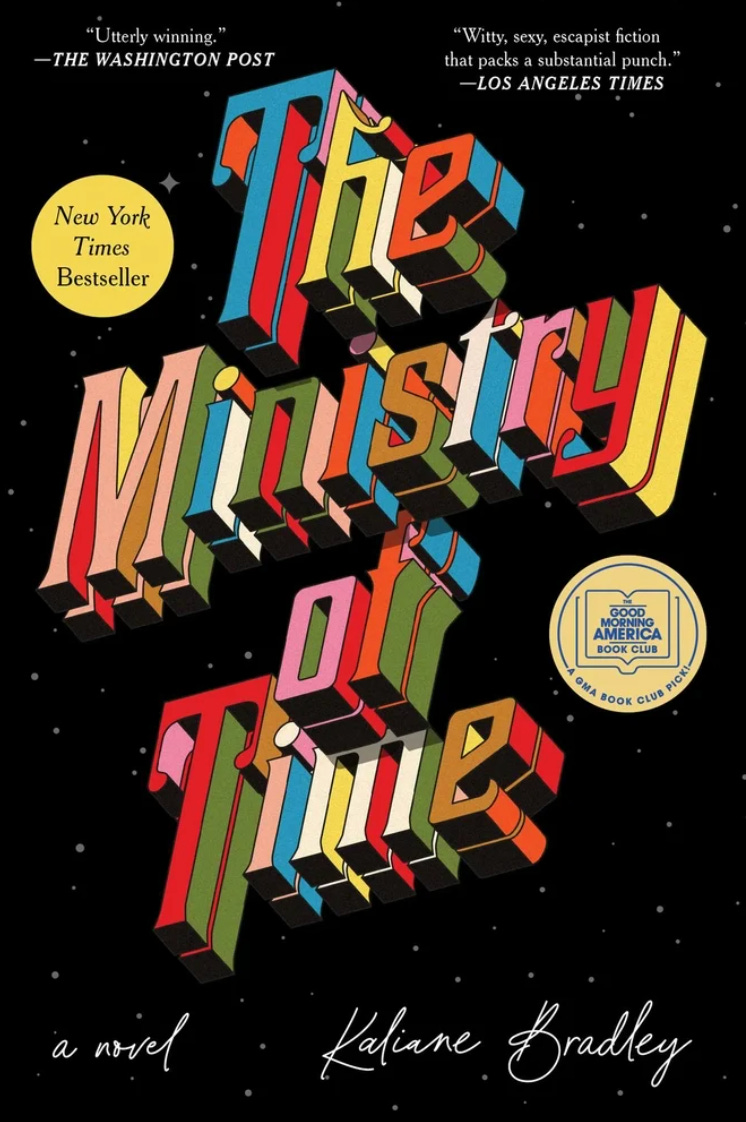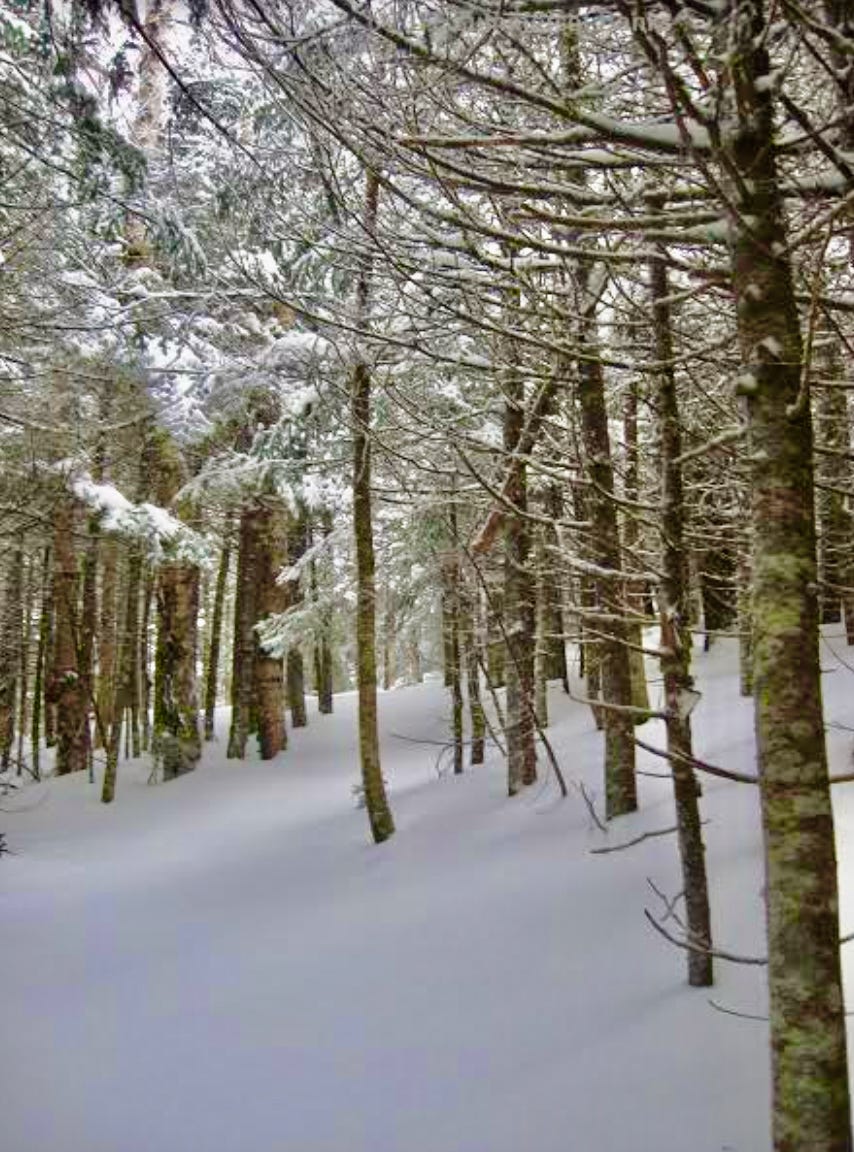Seven hours later I felt like a new woman
Kaliane Bradley's The Ministry of Time had everything I needed
Before we begin…
Have you had any experience as an expat, refugee, or immigrant who has left one home for another? How long did it take for you to feel at home or have you ever felt that you were home? Or if you have lived in one country most of your life, what do you think would be the greatest challenges to a person arriving new to the place you call home?
Welcome! You’ve reached Spark. Learn more here or just read on. If you received this from a friend, please join us by subscribing. If you have already subscribed, welcome back! And if this email is truncated in your inbox, just click the headline above to come on through and read everything all at once.
My husband was right of course
He told me that when I returned from my 11-day trip east, I would need at least another 11 days to recover. He’s seen it before, this re-entry from my visits to family, places, and friends that form a huge chunk of my personal history. He’s witnessed and has been on the receiving end of the physical and emotional side effects of what I have come to see as a kind of time travel.
What else can I call it? I climb aboard a plane in San Diego and less than ten hours later, I am immersed in memories, sights, smells, feelings that carry me into the past even as they remind me of how they – and I – have changed. These trips are never defined solely by geography. As I mark the passage of the flight over the country on the little blue screen facing me on the airplane, I feel suspended between homes, between the present and the past. The older I become, the more difficult this transition from the present to the places and people of my past becomes. Losses - past, current, and impending all enter into it. Call it an “emotional hangover” or call it emotional jet lag, the lurching about from memory to memory, from the joy of arrival to the pain of parting, the feeling of never-enough time – it’s disorienting and, at times, painful. Re-entry has required sleep, patience on the part of my mate, and more tears than I thought possible given how lucky I am to have the kind of people, places, and love in my life that I have.
Then, as has happened so many times before, I found the right book at the right time. I opened up my Kindle to Kaliane Bradley’s novel, The Ministry of Time. I’d bought it after hearing an intriguing interview with the author back in May and then promptly forgot about it. I will never be able to say that again. This novel swept me away and, then, brought me back to myself. For an entire afternoon and most of an evening, I got lost in the story. Fell in love with its people. I laughed out loud. I felt my nerve endings come alive with the writing and the insight. It’s got polar expeditions, wit, suspense, depth, and romance. It is one of the few books I can think of in which the beginning is as pitch-perfect as the ending. I highlighted so many lines that I turned the entire book yellow.
The book opens with a few vivid paragraphs that place us in the mind and body of an actual member of the ill-fated Franklin expedition to discover the Northwest Passage, Graham Gore, as he is trudging through Arctic tundra on the verge of freezing to death.
“Perhaps he’ll die this time.
He finds this doesn’t worry him. Maybe because he’s so cold he has a drunkards’ grip on his mind. When thoughts come, they’re translucent, free-swimming medusae. As the Arctic wind bites at his hands and feet, his thoughts slop against his skull. They’ll be the last thing to freeze over.” - Kaliane Bradley, The Ministry of Time

Gore, a member of the real Franklin expedition, is one of five people plucked from the past by the British government. Each of those taken comes from a different period of time and each is assigned a person, called a “bridge,” to help them acclimate to the present. Set in London, the story is largely told by the unnamed bridge assigned to Gore. She is the daughter of a Cambodian mother who was a refugee, and a white father. Her response to her mother’s experience is to find a way to gain power within the existing bureaucracies, to be successful while maintaining a certain distance. She often passes for white because she can but also because it allows her to navigate a culture that would, by default, define her in terms of her mother’s trauma.
“My sister and I grew up, as many children of immigrants do, half parented and half parenting. Our mother needed our help to navigate her new country. Her need pinched us in different ways. My sister became invested in cataloging , in retelling and remembering,in what she called the truth . I became obsessed with control, which I suppose is another way of saying I wanted command of the narrative.” -Kaliane Bradley, The Ministry of Time
And although time travel plays a role, this book is really about how it feels to be forced to leave one’s home with no expectation of return. It is about the very different ways a human can respond to such an event and how the culture to which they flee receives them. It raises piercing questions about trauma, history and the nature of time.
“The time - travel project was the first time in history that any person had been brought out of their time and into their far future. In this sense, the predicament of the expats was unique . But the rhythms of loss and asylum, exodus and loneliness, roll like floods across human history.”-Kaliane Bradley, The Ministry of Time
One of time travelers, called “ex-pats” by the government, never acclimates to the present because she cannot let go of her grief over no longer being where she was. A mysterious official called The Brigadier explains that “she is grieving and grief will always take one out of time.” A shiver went through me as I read that. I’ve never been a refugee but I have experienced how grief can pull one out of the day-to-day, to feel stuck while time continues to flow by. Lines like this are woven throughout the novel. They help the reader feel a little of what a refugee might feel after being uprooted and attempting to acclimatize to a foreign place. Most don’t have the “bridges” like the narrator who is to live with Gore for a year in order to make sure that his transition goes as smoothly as possible.
Perhaps unsurprisingly for two people who must share a dwelling together for a year, the narrator and her charge, Gore, fall in love. The unfolding of this relationship between the mixed-race millennial and the Victorian white male who has spent most of his life in the British navy is a source of some of the funniest dialog in this novel as well as some of the truest descriptions of how it feels for someone who has always sought control to lose it.
“If you are surprised that so soon after a secret agent tried to kill me, I was wondering whether the man with whom I’d had sex liked liked me , remember that being in love is a form of blunt - force trauma. I was concussed with love for him.”
“I had always thought of joy as a shouting, flamboyant thing, that tossed breath into the sky like a ball. Instead it robbed me of my speech and my air.”
“No one had given me permission to feel this way , and I thought I might not be allowed it. He combed his fingers through my hair and I was frightened with happiness, harrowed by it. There was no way that anyone could feel this much without also knowing they were going to lose it.” - -Kaliane Bradley, The Ministry of Time
In the end, though, she must face who she is. Who she is, or decides to be, impacts the course of her relationship with Gore and how the future itself unfolds. The story pokes at the familiar time-travel trope that to change history would mean altering the future. By the end, the narrator comes to understand that even if this may be true, it is not the essential truth. She writes the final words in the novel for the woman she has yet to become and, I could not help believing, for me and for every reader who finds this novel no matter where they are in their own personal history.
“The truth is, it won’t get better if you keep making the same mistakes . It can get better, but you must allow yourself to imagine a world in which you are better. I don’t mean to sound pessimistic. I only do because I can see how wrong my choices were. Don’t do it like this. Don’t enter believing yourself a node in a grand undertaking, that your past and your trauma will define your future, that individuals don’t matter. The most radical thing I ever did was love him, and I wasn’t even the first person in this story to do that. But you can get it right, if you try. You will have hope, and you have been forgiven . Forgiveness, which takes you back to the person you were and lets you reset them. Hope, which exists in a future in which you are new . Forgiveness and hope are miracles. They let you change your life. They are time - travel.”-Kaliane Bradley, The Ministry of Time
If you like what you see or it resonates with you, please take a minute to click the heart ❤️ below - it helps more folks to find us!
More from Kaliane Bradley
It’s glaringly obvious that I have become an enthusiastic fan of Kaliane Bradley’s writing. Immediately upon finishing The Ministry of Time, I looked for more and found these two gems that, if you are new to her, will help you get acquainted. Here is her short story, “Bishop of the Bluebells,” which is full of the same wit and vivid writing I found in her novel.
And here is the engaging interview she did for Waterstones.
The show that launched a novel: The Terror
And if you could use a little Arctic ice right now and frisson of fear, here is a horror series based on the story of the Franklin expedition to discover the Northwest Passage. Watching this during the pandemic gave Bradley the character of Graham Gore, a perfectly obscure figure from history whose story was waiting to be written by a novelist with an obsession for polar exploration, among many other things.
Short read: a physician finds himself in his patient
“It takes a powerful force to break the bond which binds us to our country; because she is beautiful; because she is wild; because she is home.” - Jay Vu, “A Cup Full of Water”
Immediately after finishing The Ministry of Time, this piece by
found me - as if the universe knew I needed it. A young girl comes into the ER. The physician on call recognizes in her something of himself. It is a story of two refugees from different times who intersect. If you are not already familiar with the work of , allow me to introduce you. With the compassion and precision of the physician he is, he will open up your heart with pieces like this one: A Cup Full of Water.Is there a pattern here?
If you’d asked me years ago if I was into time travel stories, I’d have told you no. As I put together my thoughts for this week’s Spark, I had a sense of deja vu. In my last newsletter to you, for instance, I shared a piece I wrote about the role of cause, effect, and luck and the “butterfly effect.” A look through the archives showed me that I am increasingly drawn to stories that touch on time travel and how the past affects the future. Many of the pieces have been triggered at least in part by the trips I’ve taken back east and the way these trips upend my sense of time. I share them again here because I suspect I am not the only one subject to this kind of time-jet-lag and for the books that each post offers because you never know when the book you most need will find you.
To know or not to know: Ruth Ozeki leaves me hanging and I think I like it
Remembering the future: My maiden voyage into the work of Ted Chiang
Visiting the past and future all at once: Emma Straub and the Spark Authors
Welcome New Subscribers!
If you’ve just subscribed, thank you so much for being here. If you would like to check out past issues, here’s a quick link to the archives. Be sure to check out our Resources for Readers and Writers too where you will find links for readers, book clubs, writers, and writing groups. And if you’d like to browse for your next read, don’t forget to check out books by authors in our community at the Spark Author Page which will be updated with new names and books for next week’s issue. Another great source: the many wonderful reviews you’ll find among the #Bookstackers.
The more the merrier! Please share with your friends and invite them to join us!
Ways to show you like what’s happening here
We don’t do paywalls here but we do work hard so if you’d like to show your support for Spark, here are some ways to do that:
Consider a paid subscription ($5/month or $35/year) or use this as a link that will allow single contributions of any amount via PayPal.
There will be no paywalls. All subscribers will still have access to every post, archives, comments section, etc. If finances are an issue (and when are they not?), you can still show your support for Spark by participating in our conversations, “liking” a post by hitting that heart, and by sharing Spark among your friends. All of these things help bring new subscribers into the fold and every time we expand our audience, the conversation grows and deepens. Click below for more info.
Let me know how you are and what you’re reading. If there’s an idea, book, or question you’d like to see in an upcoming issue of Spark, let us know! Use the comment button below or just hit reply to this email and send your message directly.
And remember, If you like what you see or it resonates with you, please take a minute to click the heart ❤️ below - it helps more folks to find us!
Ciao for now!
Gratefully yours,
Betsy
P.S. And now, your moment of Zen…remembering cooler, quieter days that brought comfort
“This was the little trail I cut through my property. I walked almost every day for my meditation.” - John G., subscriber
Calling for Your Contribution to “Moment of Zen”:
What is YOUR moment of Zen? Send me your photos, a video, a drawing, a song, a poem, or anything with a visual that moved you, thrilled you, calmed you. Or just cracked you up. This feature is wide open for your own personal interpretation.
Come on, go through your photos, your memories or just keep your eyes and ears to the ground and then share. Send your photos/links, etc. to me by replying to this email or simply by sending to: elizabethmarro@substack.com. The main guidelines are probably already obvious: don’t hurt anyone -- don’t send anything that violates the privacy of someone you love or even someone you hate, don’t send anything divisive, or aimed at disparaging others. Our Zen moments are to help us connect, to bond, to learn, to wonder, to share -- to escape the world for a little bit and return refreshed.
I can’t wait to see what you send!
And remember, if you like what you see or it resonates with you, please share Spark with a friend and take a minute to click the heart ❤️ below - it helps more folks to find us!






Betsy, thank you for the shout out. I discovered Ruth Ozeki through you, and looking forward to doing the same with Kaliane Bradley. The language is beautiful!
Funnily enough, I have been writing about exactly this theme this week - being torn between two lives, two homes, two selves. The irresolvable internal conflict of being an immigrant. It's such a vast subject I hardly know where to start, and often has me pondering the experiences of those who are forced to leave their homes rather than choosing this for themselves. Adding this book to my reading list, thank you for the recommendation 😊